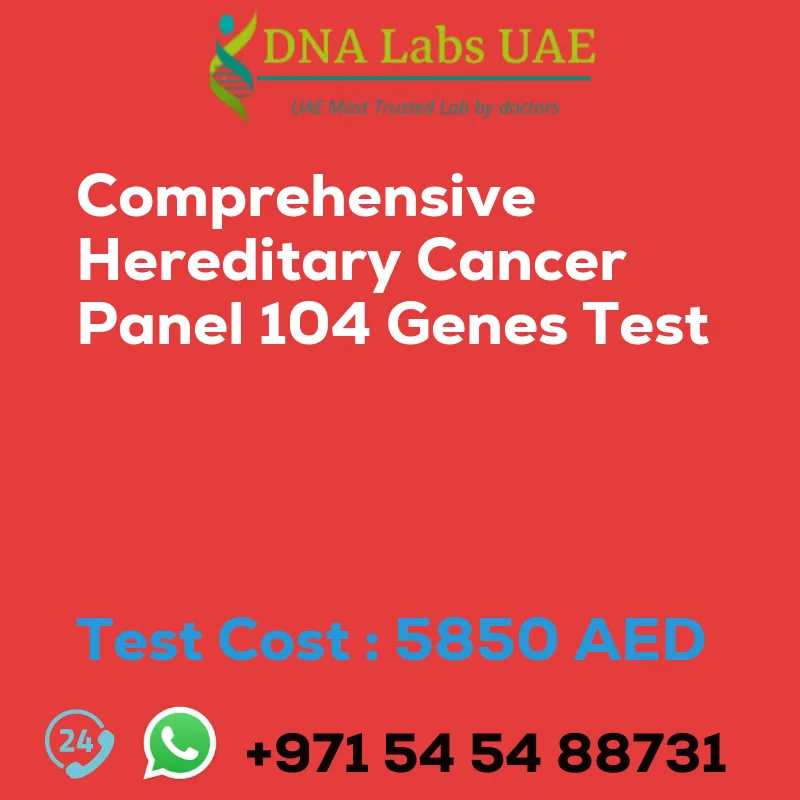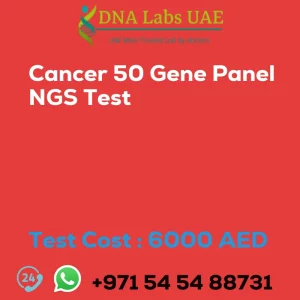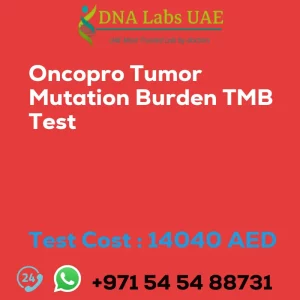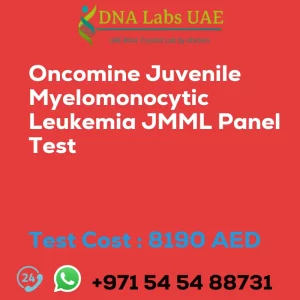COMPREHENSIVE HEREDITARY CANCER PANEL 104 Genes Test
Test Name: COMPREHENSIVE HEREDITARY CANCER PANEL 104 Genes Test
Components: Screens 104 genes
- AIP
- ALK
- APC
- ATM
- BAP1
- BARD1
- BLM
- BMPR1A
- BRCA1
- BRCA2
- BRIP1
- BUB1B
- CDC73
- CDH1
- CDK4
- CDKN1C
- CDKN2A
- CEBPA
- CEP57
- CHEK2
- CYLD
- DDB2
- DICER1
- DIS3L2
- EGFR
- EPCAM
- ERCC2
- ERCC3
- ERCC4
- ERCC5
- EXT1
- EXT2
- EZH2
- FANCA
- FANCB
- FANCC
- FANCD2
- FANCE
- FANCF
- FANCG
- FANCI
- FANCL
- FANCM
- FH
- FLCN
- GATA2
- GPC3
- HNF1A
- HOXB13
- HRAS
- KIT
- MAX
- MEN1
- MET
- MLH1
- MSH2
- MSH6
- MUTYH
- NBN
- NF1
- NF2
- NSD1
- PALB2
- PHOX2B
- PMS1
- PMS2
- PPM1D
- PRF1
- PRKAR1A
- PTCH1
- PTEN
- RAD51C
- RAD51D
- RB1
- RECQL4
- RET
- RHBDF2
- RUNX1
- SBDS
- SDHAF2
- SDHB
- SDHC
- SDHD
- SLX4
- SMAD4
- SMARCA4
- SMARCB1
- STK11
- SUFU
- TMEM127
- TP53
- TSC1
- TSC2
- VHL
- WT1
- WRN
- XPA
- XPC
Price: 5850.0 AED
Sample Condition: Blood
Report Delivery: 4 weeks
Method: Next Generation Sequencing
Test type: Cancer
Doctor: Physician, Oncologist
Test Department: MOLECULAR DIAGNOSTICS
Pre Test Information: A duly filled Oncopro Hereditary Cancer Risk Clinical Information Form (Form 27) is mandatory.
Test Details
The Comprehensive Hereditary Cancer Panel (104 Genes) test is a genetic test that analyzes a person’s DNA for mutations or changes in 104 genes that are associated with an increased risk of developing certain types of cancer. These genes include BRCA1, BRCA2, TP53, PTEN, and others.
The test is typically recommended for individuals with a personal or family history of cancer, especially if the cancer occurred at a young age or affected multiple family members. The results of the test can help identify individuals who are at an increased risk of developing cancer and may benefit from increased cancer screening, risk-reducing surgeries, or other preventative measures.
The test is performed using a small blood sample or saliva sample, and the results are usually available within a few weeks. The test may be covered by insurance, depending on the individual’s specific circumstances and insurance coverage.
It is important to note that a positive result on the test does not necessarily mean that an individual will develop cancer, but it does indicate an increased risk. It is also possible to have a negative result on the test and still develop cancer, as not all genetic mutations that increase cancer risk are included in the panel.
Genetic counseling is recommended before and after the test to help individuals understand the implications of the results and make informed decisions about their healthcare.
| Test Name | COMPREHENSIVE HEREDITARY CANCER PANEL 104 Genes Test |
|---|---|
| Components | Screens 104 genes:*AIP, *ALK, *APC, *ATM,*BAP1, *BARD1, *BLM, *BMPR1A, *BRCA1, *BRCA2, *BRIP1, *BUB1B, *CDC73, *CDH1, *CDK4, *CDKN1C, *CDKN2A, *CEBPA, *CEP57, *CHEK2, *CYLD, *DDB2, *DICER1, *DIS3L2, *EGFR, *EPCAM ,*ERCC2, *ERCC3, *ERCC4, *ERCC5, *EXT1, *EXT2, *EZH2, *FANCA, *FANCB, *FANCC, *FANCD2, *FANCE, *FANCF, *FANCG, *FANCI, *FANCL, *FANCM, *FH, *FLCN, *GATA2, *GPC3, *HNF1A, *HOXB13, *HRAS, *KIT, *MAX, *MEN1, *MET, *MLH1, *MSH2, *MSH6, *MUTYH, *NBN, *NF1, *NF2, *NSD1, *PALB2, *PHOX2B, *PMS1, *PMS2, *PPM1D, *PRF1, *PRKAR1A, *PTCH1, *PTEN, *RAD51C, *RAD51D, *RB1, *RECQL4, *RET, *RHBDF2, *RUNX1, *SBDS, *SDHAF2, *SDHB, *SDHC, *SDHD, *SLX4, *SMAD4, *SMARCA4, *SMARCB1, *STK11, *SUFU, *TMEM127, *TP53, *TSC1, *TSC2, *VHL, *WT1, *WRN, *XPA, *XPC |
| Price | 5850.0 AED |
| Sample Condition | Blood |
| Report Delivery | 4 weeks |
| Method | Next Generation Sequencing |
| Test type | Cancer |
| Doctor | Physician, Oncologist |
| Test Department: | MOLECULAR DIAGNOSTICS |
| Pre Test Information | A duly filled Oncopro Hereditary Cancer Risk Clinical Information Form (Form 27) is mandatory. |
| Test Details |
The Comprehensive Hereditary Cancer Panel (104 Genes) test is a genetic test that analyzes a person’s DNA for mutations or changes in 104 genes that are associated with an increased risk of developing certain types of cancer. These genes include BRCA1, BRCA2, TP53, PTEN, and others. The test is typically recommended for individuals with a personal or family history of cancer, especially if the cancer occurred at a young age or affected multiple family members. The results of the test can help identify individuals who are at an increased risk of developing cancer and may benefit from increased cancer screening, risk-reducing surgeries, or other preventative measures. The test is performed using a small blood sample or saliva sample, and the results are usually available within a few weeks. The test may be covered by insurance, depending on the individual’s specific circumstances and insurance coverage. It is important to note that a positive result on the test does not necessarily mean that an individual will develop cancer, but it does indicate an increased risk. It is also possible to have a negative result on the test and still develop cancer, as not all genetic mutations that increase cancer risk are included in the panel. Genetic counseling is recommended before and after the test to help individuals understand the implications of the results and make informed decisions about their healthcare. |








